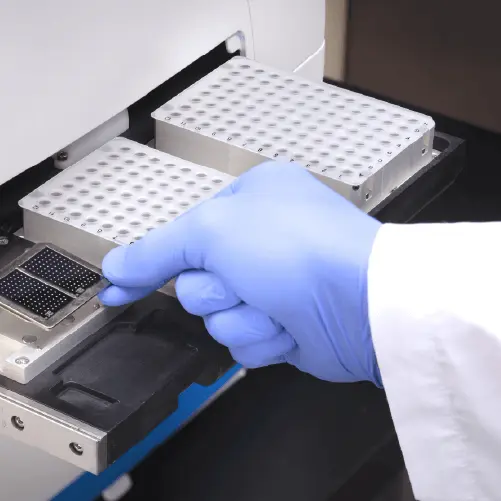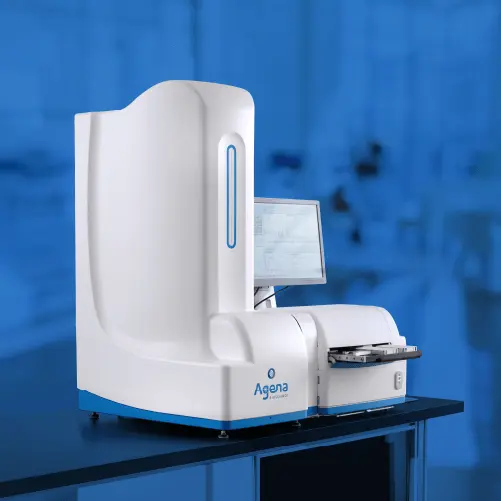Phone: (858) 882-2800
Explore how expanded DPYD testing is changing PGx research
Dihydropyrimidine dehydrogenase (DPD) is the essential enzyme responsible for breaking down pyridimine-based chemotherapy drugs such as 5-fluorouracil (5-FU) and capecitabine. The DPYD gene encodes DPD, and variants in this gene can result in decreased enzyme activity.
For individuals with these variants, fluoropyrimidine drugs can build up to toxic levels. Although the science has been clear for years, the tools to explore this risk with complete and efficient variant coverage have only just caught up.
1 Amstutz, U., et al. (2018). Clinical Pharmacogenetics Implementation Consortium (CPIC) guidelines update for DPYD and fluoropyrimidine dosing. Clinical Pharmacology & Therapeutics, 103(2), 210–216. (https://doi.org/10.1002/cpt.911). 2 Lunenburg, C.A.T.C., et al. (2020). Prospective DPYD genotyping to reduce the risk of fluoropyrimidine-induced severe toxicity: Ready for prime time. European Journal of Cancer, 124, 47–56.( http://dx.doi.org/10.1016/j.ejca.2015.11.008)

Supports indentification of contributors to chemotheraphy-related toxicity

Characterizes risk profiles across diverse populations

Informs designs of targeted oncology research protocols
Recent advances in pharmacogenomics research have highlighted the critical importance of comprehensive DPYD variant screening in oncology research studies. The Association for Molecular Pathology (AMP) recommendations now recognize multiple DPYD variants as clinically actionable, driving increased demand for thorough variant analysis in research settings.
Researchers worldwide are investigating how DPYD polymorphisms affect drug metabolism across diverse populations, contributing to precision medicine research initiatives.
Recent research published in the Journal of Molecular Diagnostics reveals significant population-specific differences in DPYD variant frequencies across diverse ethnic groups, highlighting critical gaps that genomics research must address. Key variants show markedly different prevalence patterns: c.1129-5923C>G (HapB3) ranges from 0.06% in East Asian populations to 2.4% in Middle Eastern populations, while c.557A>G shows the highest frequency in individuals of African genetic ancestry at up to 2.1%.
Population-exclusive variants like c.868A>G (African and Middle Eastern populations only) and c.2279C>T (primarily South Asian at 0.5%) demonstrate why comprehensive variant panels are essential for multinational research studies.
The VeriDose® DPYD Plus Panel (RUO) enables robust, AMP-aligned variant analysis with:

18 total variants (AMP Tier 1 & Tier 2 + 4 additional markers)

A cost-effective, multiplexed design using MassARRAY® technology

Compatibility with other Agena PGx panels for combined runs and streamlined workflows
Director of Pharmacogenomics, Atrium Health
Be the first to see how the VeriDose DPYD Plus Panel performs. Get access to the performance white paper, which features real-world data from three beta testing sites.